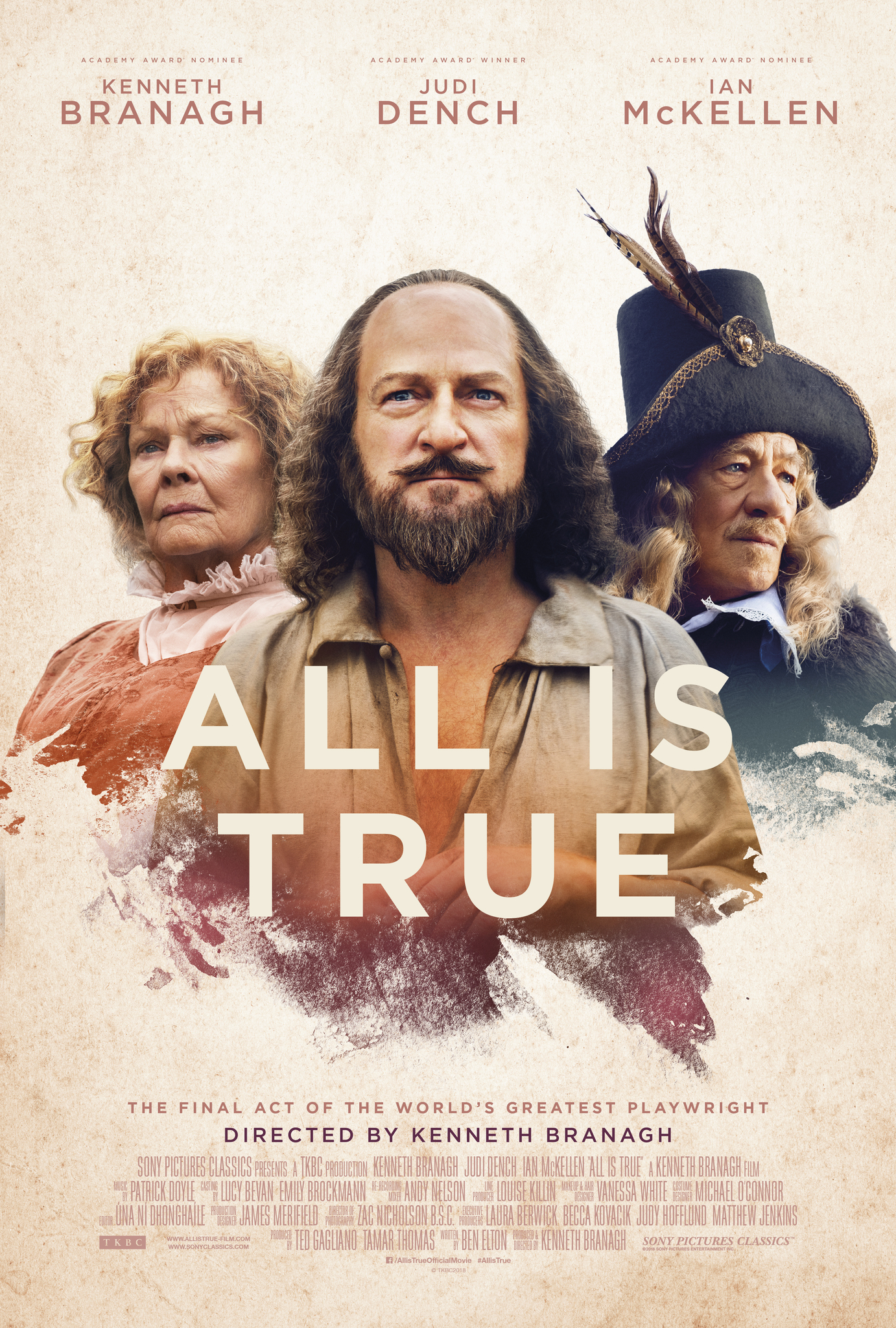All is True follows the final years of William Shakespeares’ life. Shortly after his theater burns down in London, Shakespeare (Kenneth Branagh) returns to his family life in Stratford-Upon-Avon, where he reignites his relationship with his wife, Anne (Judi Dench) and advises the relationships of his two adult daughters. Moving back home brings back old demons, such as the guilt that he feels over the death of his young son, which occurred many years ago, while Shakespeare was away from his family.
All is True is a fascinating, affecting, and surprising story about the most famous writer in history. The surprising aspect comes from how the film focuses on ordinary life. Shakespeare was very famous in his day, but when he returns to his hometown, people do not treat him as a celebrity. If anything, he gets a standoffish vibe from those who do not understand how he could leave his family or those who might think that the theatre is an unfit profession. He is not valued by many of the townsfolk, who tend to be very religious and work in trade. Shakespeare doesn’t flaunt his fame, as he has returned home to focus on his family. He even takes on the task of creating a garden. He returns to a rather mundane and ordinary life.
Shakespeare’s son, Hamnet died at age eleven, while Shakespeare was working in London. Shakespeare never got over the death of his beloved son and felt a tremendous amount of not only grief, but guilt at having missed the funeral. Shakespeare was told that Hamnet died from the plague, but when he returns home, the truth of Hamnet’s death is finally revealed. I don’t want to spoil it in this review., but I felt it was the heart of the story. The reason for the death and the trauma that reverberates throughout the entire Shakespeare family is the central drama of All is True. It deals with themes beyond grief, also speaking to the idea of talent, sexism, and favoritism.
Shakespeare’s talent and words have stood the test of time, yet it is revealed that he was not a scholar. He did not come from an educated background and was not wealthy. He was very much a self-made man. His wife is also uneducated and could not even sign her name on their marriage certificate. A sweet moment comes when Anne learns to write her name and as a surprise for her husband, she replaces the penmark on their marriage certificate with her signature.
The film makes clear that Shakespeare felt a tremendous purpose in his calling to work in the theatre, yet he was conflicted, because it meant that he could not be present as a husband and father. All is True shows him desperate to make sure that his family is set up for the future, including worrying about inheritances for his daughters. His daughter Susanna (Lydia Wilson) is married to a local minister, who has a very rigid morality code. His daughter Judith (Kathryn Wilder) has resisted marriage, until finally becoming romantically involved with a scandalous man who has impregnated another woman in town. The two daughters could not be living different lives. Shakespeare is concerned that his daughters are both happy and that their financial futures are secure, an idea of great importance, as women of the era were exempt from inheritances and Shakespeare did not have any male heirs.
I’d be remiss if I didn’t mention the outstanding performances from this renowned cast. Branagh was unrecognizable as Shakespeare, as he completely melted into the role. The real standout with a truly meaty role goes to Wilder, as daughter Judith. Judith is a woman in immense pain and she suffers from both the decisions of her past and the uncertainty of her future. She’s also a bit of a rebel and the most engaging character.
All is True is a beautiful and emotional film. Well worth seeing!


